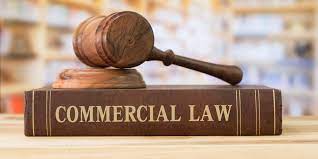Commercial attorney for your business
On the off chance that you are battling with a business law issue, there is no motivation to deal with the matter all alone. An accomplished lawyer can clarify how the law applies to your circumstance and propose a game plan to secure your lawful rights. Timetable a discussion today.
What is Business Law?
Business law gives the
standards that shippers and others associated with trade should follow as they
lead business among themselves and buyers. It administers the deals of labour
and products, debatable instruments, security interests, leases, head and
specialist connections, agreements of carriage, and substantially more. From a
comprehensive perspective, business law additionally includes related issues
like business liquidation and expense arranging.
Because various legal issues may be included or excluded from the subject of commercial law depending upon how expansively it is defined, it may be more helpful to consider the matter in terms of timing. Commercial law covers legal issues that arise before the initiation of a lawsuit. By contrast, once a lawsuit is filed, the same issues are more appropriately characterized as litigation. Thus, commercial law attorneys help their clients negotiate and enter into business deals. Litigation attorneys help their clients defend their interests in court when sales go bad. A business lawyer gets you out of any issue regarding such
Elements of a Contract
The ability to form contracts
represents the foundation of modern commercial law. Without assurances, sellers
and buyers would be unable to enter into transactions, as they would have no
guarantee that the other side will honor its half of the bargain. That is not
to say that contracts are based on the goodwill or trustworthiness of parties
in the marketplace. Instead, contracts are based on a system of rules for
forming agreements that, if followed, allow parties to rest assured that the
terms of their deals will be enforced by the legal system if necessary.
Contracts are formed when the
following three elements are present: an offer, an acceptance, and
consideration. For a request to be valid, specific rules must be followed. The
proposal must be made to an identified party, and it must set forth definite
and particular terms. The offer must also demonstrate a present intent to
agree. Similarly, the other party must properly accept the request for a
contract to be formed. In most situations, a valid acceptance must mirror the
offer. A purported acceptance that adds new terms to the deal will not count.
Instead, it will be treated only as a counteroffer.
The final element required to
form a contract is known as consideration. Consideration refers to a
bargained-for exchange. It means that the person who promises to do something
must receive a benefit in return. Otherwise, the promise is merely gratuitous,
and there is no contract. For example, if the owner of a lawnmower promises to
lend it to a neighbor, no warranty exists, and the owner can later refuse.
Because commercial law is
primarily found in state statutes, there is a potential for states to enact
conflicting rules, thereby disrupting the flow of interstate commerce. Not all
commercial transactions are governed by the LAW, however. It applies to the
sale of "goods." This includes just about any movable object, but it
does not include services or real estate. The LAW also provides special rules
for those who regularly deal in the type of goods at issue, as opposed to
non-merchants who only buy or sell them occasionally. Another unique aspect of
the LAW is known as the "perfect tender rule." General commercial law
principles only require parties to perform their contractual duties to avoid a
breach substantially. Under the LAW, a contract will be breached if the goods
(or their delivery) fail to conform to the agreement in any way.
Third-Party Contract Issues
In today's complex
marketplace, it is not unusual for a contract to affect the rights of a third
party - that is, someone other than the parties who created the contract. This
can create several legal issues. Consider the example of a bank that lends
money to a borrower. After making the loan, the bank sells its right to collect
the loan to another company. Is the borrower obligated to pay the company, even
though the borrower never contracted with them directly? And if the borrower
fails to pay, can the company turn around and sue the bank for breach of
contract? Commercial law provides answers to these and other such questions
involving third parties.
These terms only become easy
through a business lawyer who seamlessly makes you go to your business by
handling these tedious tasks.
There are many commercial
lawyers in Sudbury, MA but hiring the right attorney needed some research. A
quick google search suggested Mr. Edward Denn, an expert Sudbury commercial
attorney, MA- always up-to-date with commercial laws changes. With him, you can
be sure that your business legal matters are in good hands. Visit Denn Law Group, a trusted Sudbury
commercial attorney in MA. Represent the company's interests for commercial
lawyer services



Comments
Post a Comment